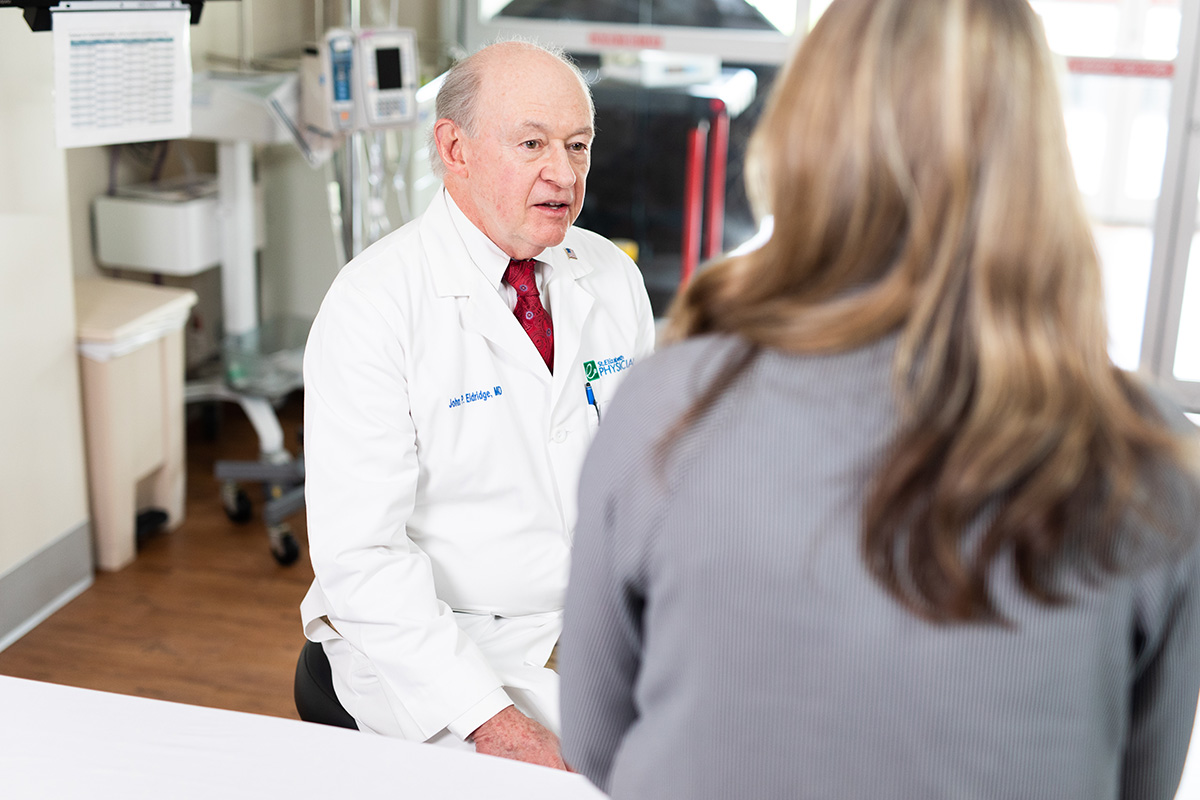Jessica Bruner
Rheumatoid arthritis made her wound hard to heal.
Jessica Bruner wanted nothing more than to feel healthy again. On top of her rheumatoid arthritis, she spent 10 years suffering from breast implant illness — an autoimmune response to implants that can cause severe symptoms including chronic fatigue, fevers, brain fog and joint pain.
In January 2019, Jessica decided to have her implants removed. Unfortunately, the wounds from surgery weren’t healing properly. Four weeks after surgery, the incisions started opening up and tunneling through the muscle.
“I was traveling to Cleveland, where I’d had the implants removed, every Saturday to have the wounds cleaned and packed, ” Jessica says.
After several weeks with no improvement, Jessica saw Dr. Roger Teller at the Patrick T. Birrer Wound Care Centers at St. Elizabeth Healthcare. Dr. Teller told Jessica that her rheumatoid arthritis and the medication she was taking can make wounds difficult to heal.
“I would come to the wound center a few days a week to have the wounds checked, and remove any unhealthy tissue,” says Jessica. “My husband and I were also changing the dressing twice a day at home.”

For More Information
Call the Covington/Grant location at: (859) 655-1100
Or call the Ft. Thomas Location at: (859) 572-3830
Or call the Dearborn Location at: (812) 496-7730
Although Jessica was doing everything the doctor ordered, her wounds still weren’t improving. She consulted with Dr. John Eldridge, a general surgeon at the Wound Care Center, who suggested a Xenograft to cover the incisions for six weeks to give them time to heal.
Having now had open wounds for several months, Jessica didn’t think she would ever find the answers she needed. She was growing weary of washing and packing her wounds at home and having to take sponge baths to protect the area.
“The doctors at the wound center never gave up on me,” remembers Jessica. “They were always upbeat and would do their best to keep my spirits up. I was encouraged when we decided to try a new approach.”
In addition to the porcine graft, the doctors turned their attention to Jessica’s nutrition. A blood test found that she wasn’t getting enough calories or protein. She immediately increased her intake of protein and calories.
“I never took into consideration that my body was using energy to try to help my wounds heal,” says Jessica. “I was eating enough for a normal, healthy body but not one that was working so hard to heal.”
She also began using a wound vac and hyperbaric oxygen therapy. To be most effective, Jessica needed hyperbaric oxygen therapy for 90 minutes a visit, five days a week. Having a total of 40 treatments.
Hyperbaric oxygen therapy enhances the body’s natural healing process by having people breathe 100% oxygen in a chamber. The extra oxygen reaches damaged tissues and allows new blood vessels to grow, which helps tissue heal.
“Kathy Persons, the hyperbaric oxygen therapy technician, helped too. I felt and looked my worst, but she treated me like a princess. Having hyperbaric oxygen therapy was a big commitment and I couldn’t have done it without my parents’ and husband’s support,” says Jessica. “I believe it is what saved me. I don’t think I could have done this without the team at St. Elizabeth Healthcare,” says Jessica. “Everyone made me feel like family, and now I have my life back.”
Make an appointment today at one of our
wound care centers
Learn more about our wound care centers or schedule an appointment today at one of the four Patrick T. Birrer Wound Care Center locations:
All locations are members of the Healogics Network, the nation’s largest advanced wound care service provider. Distinctions for our wound care services include being named a Healogics Center of Distinction, Healogics Center of the Year and Healogics Center of Excellence.

